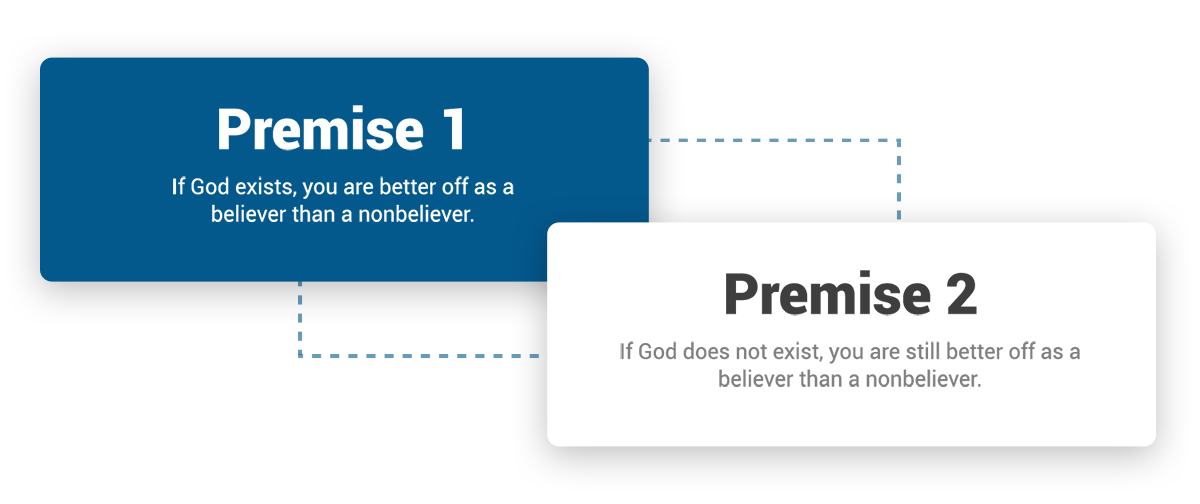WHAT ABOUT THOSE WHO HAVE NEVER
HEARD OR WILL NEVER HEAR ABOUT
JESUS, WILL THEY GO TO HEAVEN?
WHAT ABOUT THOSE WHO HAVE NEVER
HEARD OR WILL NEVER HEAR ABOUT
JESUS, WILL THEY GO TO HEAVEN?
Let's Explore The Answer
Let's Explore The Answer
Everyone in the world wants to be treated fairly. We want to believe our chance of success in life is equal to that of everyone around us; that's essentially the American dream. We hate hearing about someone spending decades in jail for something they didn't do. But, we also like justice. We want to know that, in the end, the good guys win and the bad guys lose. The movie industry makes billions of dollars on this winning concept year after year.
In Christianity, people's need for fairness and justice comes to a crossroads in one particular question. We want to know what will happen to the person in a far-off land who has never heard about Jesus – will they go to heaven? This is a challenging question and skeptics, atheists, and Christians will respond differently.
Living On The Edge
Learn More About God
Sign up to gain immediate access to free sermon MP3s, devotionals, blog content, and more.


What The Bible Says
The Bible explains that everyone on the planet has a problem called sin (Rom. 3:23). Like a disease, it's passed from parent to child and infects every human who has ever lived. The Bible is clear that the cost of our sin is death, meaning if we don't take care of this problem while we're alive, we'll have an even bigger problem when we die (Rom. 6:23). However, God sent his son Jesus to take care of our problem called sin so that we can be with God both now and forever. This is a gift from God to all who will believe in Him (Rom. 10:9). Everyone who believes has a responsibility to share this good news with those who do not know (Matt. 28:16-20). Everyone who hears this good news has a responsibility to respond. But, what about those who haven't ever heard?
This is a difficult question and some Christians even disagree on the answer. The Bible explains that the nature of God is evident to all – even those who have never heard about Jesus (Rom. 1:19-20; Ps. 19:1). But, general knowledge about God doesn't specify whether or not they'll go to heaven. When questions are complicated, the best place to start is with what we do know about God. We know that God is fair and just, gracious, and loving.
God is fair and just. The Bible says that God is a just judge who treats people with equity (Ps. 9:8). God treats people the same no matter who they are so no one will ever leave his throne feeling as if they were treated unfairly.
God is gracious. The Bible says that God is "compassionate and gracious, slow to anger, abounding in love" (Ps. 103:8-12). He will always act according to his nature.
God is loving. The Bible explains that God loves the world (John 3:16-18) because God is love. Therefore, any action he takes will be out of love.
The fact that God is fair, just, gracious, and loving doesn't mean people get to do whatever they want and God's ok with it. Parents try to be fair, just, and loving and it doesn't mean children get to eat candy all day while watching endless hours of television. Parents try to do what's best for their children through rules, boundaries, and consequences, while enforcing rules with grace and love.
We know that God loves the person who has never heard about Jesus more than we will ever understand. We also understand that the nature of God is clear to them through creation. They have a responsibility to respond to what they know and understand. God's love will ensure they are treated fairly so that they will one day leave God's presence feeling that they were treated with grace and justice.
There are some things we may need to ask God to explain when we stand before Him. We may never be able to fully solve this challenging question here on earth. It's one reason why Jesus sent his disciples to share the good news across the globe; He wanted to make sure everyone knew about God's love. But, what about you? We can't speak for the person on the other side of the world, but how will you respond to God's good news?
What would happen if you embraced the possibility that the God of the Bible really did create the world and really does care for you?
Pascal's Wager

In the seventeenth century, a famous philosopher and mathematician, Blaise Pascal, encouraged people to make a wager when it came to belief in God. If a person chose to believe in God and God did exist, that person would gain everything (eternal life). If a person chose to believe in God and God did not exist, that person would lose nothing. On the other hand, if a person chose not to believe in God and he was right, he would lose nothing. But if that person did not believe in God and he was wrong- he would lose everything (lose eternal life).
This wager can be said another way:

Based on this logic, Pascal suggested the rational person would choose to believe in God as believing offers a person everything (eternal life) while losing nothing. Wherever you are in your faith journey, would you consider taking Pascal's wager? If the good God of the Bible exists, you have nothing to lose and everything to gain by believing in Him today.
We'd Like to Provide More Resources to Help You Learn About God
To stay in touch with weekly resources from our team, fill out your information below.
